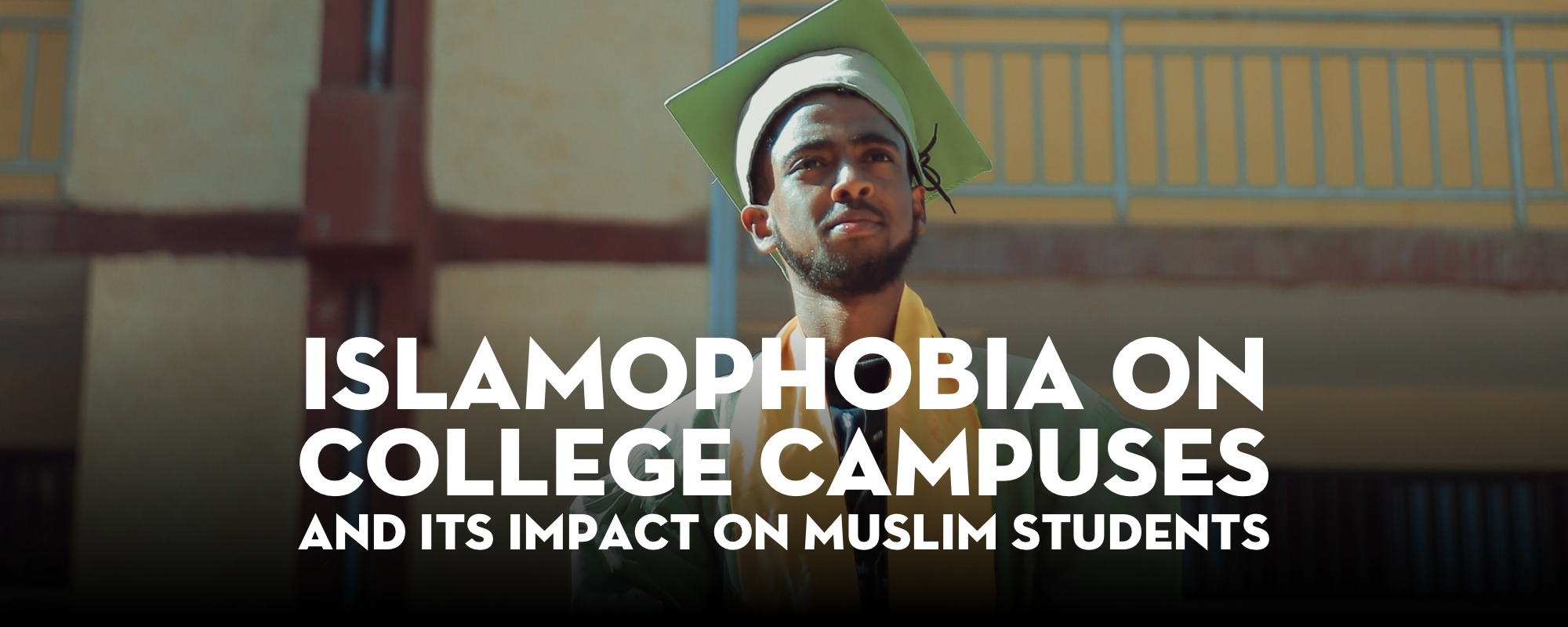
In this report, the California Chapter of the Council on American-Islamic Relations (CAIR-CA) presents its analysis of a 2019-2020 college campus climate survey of American Muslim college and university students.
The survey was administered to students at over sixty institutions of higher learning primarily throughout the state of California, including both public and private universities and colleges. Its purpose is to examine the lived experiences of American Muslim college students and the issues they face, particularly as a consequence of their real or perceived Muslim identities.
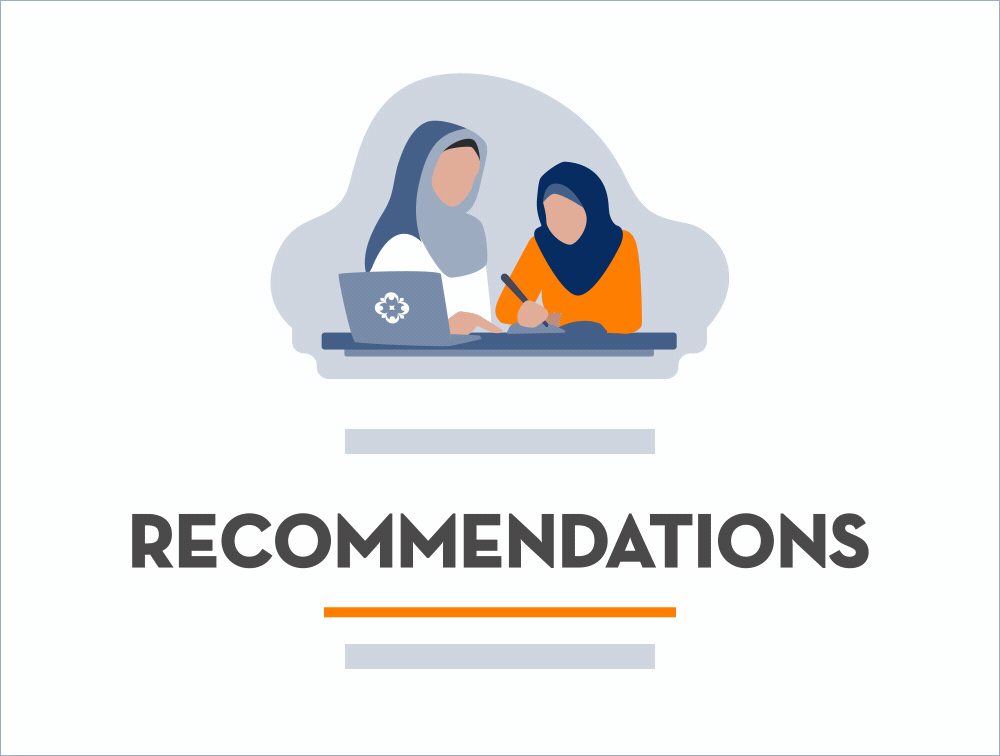
Belonging to a stigmatized religious group may lead to increased feelings
of rejection and discrimination. This is especially true for Muslim college
students in the current sociopolitical climate as outlined by the findings of this
report. Included below are recommendations made by CAIR-CA that college
administrators and college students can utilize to combat Islamophobia on
campus.
There are several actions college administrators can take
to ensure that their campuses are places where Muslim
students feel welcome, included, and valued. While the
following recommendations are based on the finding of
the survey results, many of the below recommendations
have been proposed by other organizations in the past.
However, we continue to see the need for colleges to
take affirmative steps to meet these recommendations.
That these recommendations are still being proposed
highlights the need for colleges to take immediate action
to implement these recommendations.
Campuses should also affirmatively work towards
investigating and learning about the specific campus
climate on their own campus and work on addressing the
unique needs and concerns of their student populations.
After a proper assessment has been completed,
campuses should implement a policy-based action plan,
train campus administrators and professors and work
to engage Muslim students in the college's community.
Colleges should foster a diverse and multicultural
environment to create an inclusive environment for all
students. The following are general recommendations that
all college administrators may take to begin to address
the concerns of Muslim students across California.
First, college administrators must provide protection
against all types of religious bullying and harassment
on campus. Campuses have an ethical and legal
obligation to protect all students from harassment and
intimidation based on their race, nationality, religion, or
other protected category. College administrators must
build upon any anti-discrimination policies they have
and ensure that such policies include: robust reporting
mechanisms, including making clear that students can file complaints against professors and administrators;
reasonable timelines for reviewing and investigating
credible complaints; a transparent overview of the status
of the review and investigation of the complaint; and a
reasonable appeal process for challenging outcomes of
reviews and investigations. These policies should also
be widely distributed and advertised to all segments of the student population on an ongoing basis, so students
are aware of the reporting mechanisms made available to
them. In order to deter discrimination and harassment,
college campuses should also implement mandatory antidiscrimination
and implicit bias. These trainings should
also inform professors and administrators on spotting
and intervening in Islamophobic discrimination and
harassment. Ensuring that anti-discrimination policies,
practices and trainings are implemented and abided by
allows for a consistent approach across all segments
of the campus to support an environment that rejects
Islamophobia and other hateful rhetoric and actions.
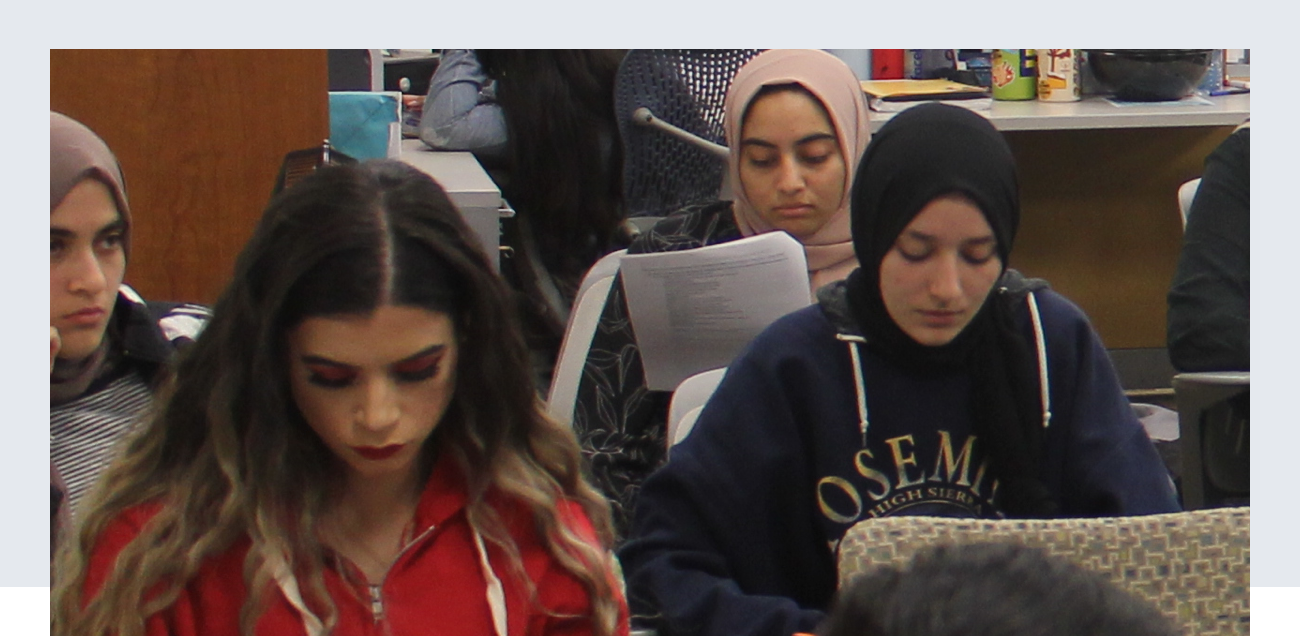
Second, colleges should commit to increased academic
courses and learning opportunities on Islam and the Arab,
Middle Easter, Muslim, and South Asian ('AMEMSA')
community on their campuses. These courses should be
part of required Ethnic Studies courses for all students. In
general, campuses should continue and increase support
for Ethnic Studies programs and recognize the importance
of courses in which underrepresented students can see
themselves reflected in their academic curriculum in a
positive and sensitive manner. Often when courses on
AMEMSA politics or history are offered, they are usually
taught by faculty not from AMEMSA backgrounds and
who sometimes project cultural insensitivity in the
classroom.25 Campuses should work to foster and
facilitate collaboration among faculty with expertise in
the area of study, and who are culturally sensitive to the
complexity of identity issues of AMEMSA students.26
Campuses should also work to recruit diverse faculty,
including AMEMSA faculty with research backgrounds in
Islamic studies.
Third, college administrators must provide reasonable
religious accommodations for Muslim students. College
administrators should initiate discussions with their
Muslim student population and be open when approached
by Muslim students regarding religious accommodations.
These accommodations ensure that Muslim students
and organizations feel welcome and safe on their own
campuses. Common religious accommodations that
are needed by Muslim students include adequate and
centrally located prayer space to accommodate the
five daily Muslim prayers in congregation; scheduling
accommodations for examinations that occur during
religious holidays or during the month of Ramadan; and
expanding accommodations for Islamic dietary/Halal
options.
Fourth, campus administrators must uphold their
obligation to foster an educational environment where
all students are free to voice their political viewpoints.
Accordingly, college administrators must actively combat
efforts to chill Palestinian rights advocates and commit
to a campus environment where student advocates feel
protected by their administrators. As discussed above,
escalating efforts to chill Palestinian rights advocacy
have a dangerous impact on individual students and on
Muslim and Arab student communities. Students across
California have been affected by negative depictions
of their activism, including an increased fear of harm
to their professional careers, immigration status, and
safety; intimidation, threats and vandalism by other
groups; and a sense that their campus administration's
mis-characterization of their message reflects efforts to
undermine their free speech rights.
College administrators must commit to stop disparaging
students who criticize Israeli policy as an expression of
their political views and to protect those students from
outside pressure. In fact, college administrators should
make public statements clarifying that criticism of Israel
is not inherently anti-Semitic and proactively reach out
to Muslim Student Associations ('MSA') and Students
for Justice in Palestine ('SJP') who have been unfairly
branded as anti-Semitic. College administrators must
also ensure they are not contributing to a climate which
intimidates and punishes students who wish to express
pro-Palestinian views by making public statements
branding advocacy for Palestinian human rights as anti-
Semitic. College administrators must reject and efforts
to label criticism or critique of Israeli state policy as
anti-Semitic. College administrators must also publicly
commit to defending against Title VI claims intended to
intimidate Palestinian advocacy and academia.
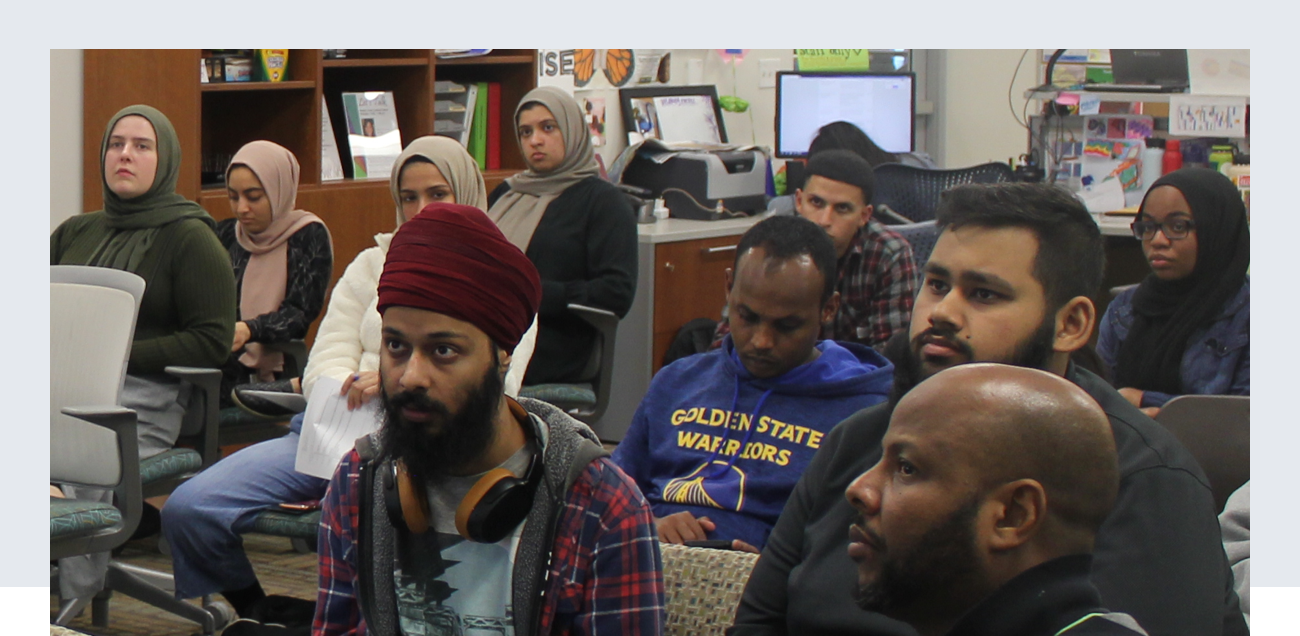
All students have the right to learn in a safe and protected
environment, free from discrimination and harassment. If
a student is a victim of Islamophobia, is being treated
differently or discriminated against based on a protected
characteristic then the student should file a complaint
with the campus. Students, parents or an advocate can
file the complaint on the student's behalf.
Despite the many challenges facing Muslim college
students, Muslim college students should continue to
get involved in their MSAs and other activist student
organizations. Doing so helps foster a sense of
community, identity, and safe space. Muslim students
should also work to build coalitions with other student
groups of color in order to have their concerns and
voices amplified on campus, both to the student body
and to administration.
In getting involved with campus organizations and
engaging in activism, it is crucial for Muslim students
to understand the rights afforded to them under Federal
and state law. Federal law, the Constitution, and the
California Constitution guarantee college students'
freedom of religion, religious accommodation, and
freedom of speech.
Regarding religious accommodations, students should
work alongside student unions and college administrations
to ensure their religious accommodations are provided
to them. Additionally, students should communicate in
advance with course instructors about prayer time and
other religious accommodations. If students encounter issues with their instructors granting accommodations,
they can consider engaging chaplains and student life
advisors to negotiate such accommodations. Students
should also review Ramadan timings and potential
academic conflicts in advance and communicate them to
course instructors.
Regarding free speech rights, college students have a
protected right to engage in and invite speech they wish
to hear, debate speech with which they disagree and
protest speech they find bigoted or offensive. Generally,
restrictions on speech by public colleges and universities
amount to government censorship, in violation of the
Constitution. However, the First Amendment does not
protect speech or behavior that is targeted harassment or
threats, or that creates a pervasively hostile environment
for vulnerable students as this may limit a student's
ability to participate in or benefit from a school's services,
activities, or opportunities. Free speech rights do not
extend to defamation, obscenity, 'true threats' or speech
that incites imminent violence or law-breaking.27 Under
California law, if repeated incidents of harassment or a
single severe incident of harassment occurs at a college
or university, the school's administration must act upon
receiving notice of the complaint.
Public colleges and universities may regulate the time,
place, and manner of speech in public forums using
reasonable restrictions, if the regulations are viewpoint
and content neutral. In general, a school must be able
to communicate an important and probable rationale –
such as a specific and realistic threat to campus security
or academic environment – in order to invoke such an
exclusion. Even if time, place and manner restrictions
exist, such regulations must allow for alternative channels
of communication and if they prevent students from
getting their message to the intended audience or if the
restrictions are differentially applied to certain groups,
then such actions are likely to be unconstitutional.
Colleges are prohibited from using time, place, and
manner regulations to unreasonably restrict student
protests or otherwise chill speech.
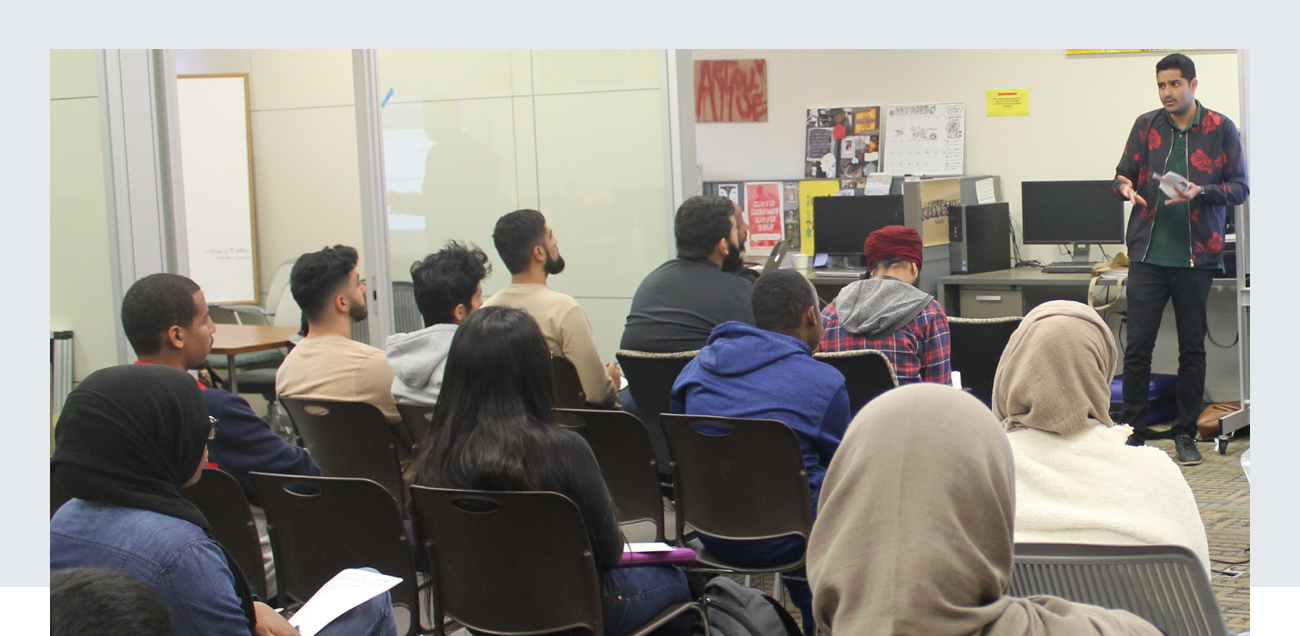
College students should report any incidents of
Islamophobia to their local CAIR-CA office. CAIR-CA
provides Know Your Rights workshops to American Muslim college students and organizations to train and
inform students of their rights on college campuses.
CAIR-CA can also work alongside Muslim students
to address requests for accommodation or address
incidents of Islamophobia on college campuses.
Upon request, CAIR-CA provides cultural competency
training to educators and administrators and we work
with students in dealing with issues affecting campus
life. Additionally, CAIR-CA conducts focus groups,
listening sessions and community surveys to understand
the problems American Muslim students face on
campus. College students should reach out to CAIR-CA
if the student or student organization is experiencing
Islamophobia on campus. CAIR-CA offers legal services
for those experiencing civil rights violations, which
includes incidents of Islamophobia on campus.